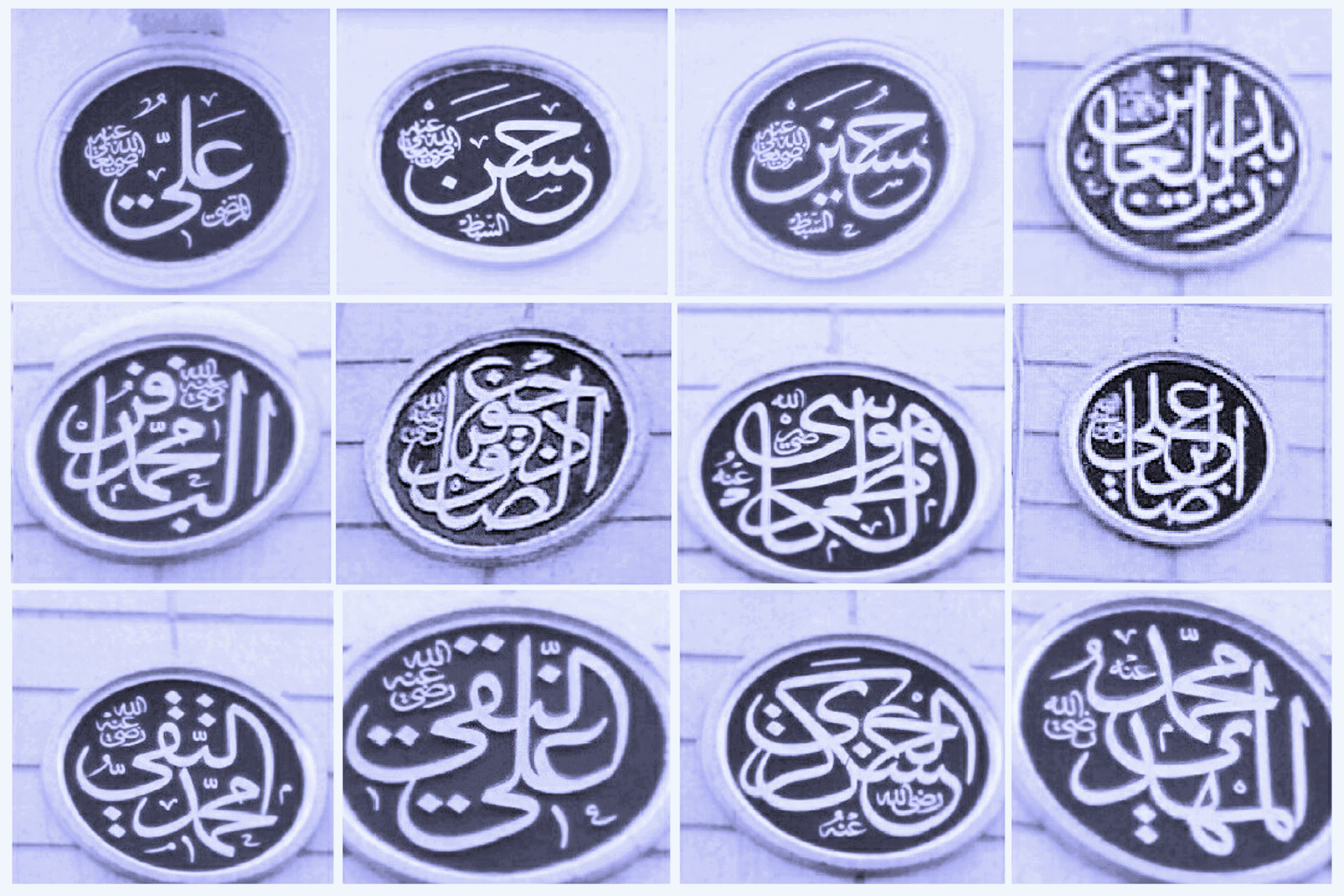The Rationale behind not having the names of the Imams (a.s.) in the Holy Quran – An Analytical Research Part II
Continued from part I …
Another reason
Anyways even after this clarification, the question remains that if the people did not have any concerns to understand the details of other matters which have a general reference in the Quran, then what reservations did they have in understanding the matter of Mastership in a similar manner? This issue also has a historical background, mentioning the details of which is beyond the purview of this discussion. We would however, definitely like to point out to a fact after which it becomes absolutely clear why did Allah not mention the names of the Ahle Bait (a.s.) in the Holy Quran.
In this ongoing discussion, it cannot be ignored that among the various reasons for not having the names of the Ahle Bait (a.s.) in the Quran, one of the reasons was to examine and test the Muslim nation which serves as a warranty for the following generations. In order to make this matter clear, we shall look at the following points:
- According to the verses of the Holy Quran, Allah definitely tests and examines every person individually and every nation collectively.
- The method of examining individuals and nations is different. Some of them were examined through dry earth in which life was blown like the test of the angels and some were examined through prohibition of fishing on Saturdays whereas on this day there were loads of fishes on the river banks. This was the examination of the Jews.
[Baqarah: 25; Nisa: 154; Aaraf: 63]
Or people were examined by ordering them to perform pilgrimage of the house of stone, the Holy Kaba, in the barren valleys of Mecca [Nahjul Balagha, sermon 192], or examining people though the fear of life, hunger and shortage of resources [Baqarah: 154]
- Among the various tests and examinations which Allah has kept for this nation is that of testing how much do the people obey and follow the Holy Prophet (s.a.w.a.) and Allah has ensured that they do not try to escape this examination by putting in place certain conditions:
- He introduced the lofty personality of the Holy Prophet (s.a.w.a.) thus in the Quran
“Do not raise your voices above the voice of the prophet and do not speak as you speak with one another lest your actions are destroyed while you may be unaware. Indeed, those who lower their voices before the Messenger of Allah – they are the ones whose hearts Allah has tested for righteousness. For them is forgiveness and great reward.”
[Hujaraat: 2, 3]
The above verse is enough to explain the lofty position and status of the Holy Prophet (s.a.w.a.) to the Muslims and there is no confusion or doubt in it. He is such a great position that Allah does not accept anyone raising his voice in his presence. If actions can be destroyed just by raising one’s voice in his presence, then what will be the consequence if someone who rejects his orders or argues with him or doubts him He will not be left with any faith or actions.
- The following verse calls for obeying and submitting to the orders of the Holy Prophet (s.a.w.a.)
“The people of Madina and those who live in its outskirts do not have the right to oppose the prophet nor can they turn away from him and act according to their own desires”
[Taubah: 120]
In another verse, Allah mentions the heartily acceptance and submission to the Holy Prophet (s.a.w.a.) as the sign of true faith and belief.
“It is not so. These people will not be true believers until they consider you as a master in their matters and do not have any hesitance in their heart regarding what you say and they submit to you.”
[Nisa: 65]
Apart from this, there are many other verses in the Quran in which Allah has ordered the absolute obedience and submission to the Holy Prophet (s.a.w.a.) without any conditions.
“Whatever the messenger gives you, take it and whatever he prohibits, refrain from it.”
[Hashr: 7]
And in the following verse, it has been made clear that the obedience of the Holy Prophet (s.a.w.a.) is the obedience of Allah.
“One who obeys the messenger has indeed obeyed Allah”
[Nisa: 80]
This reality has also been stressed upon in traditions. Shaikh Kulaini (a.r.) has brought an entire chapter in his renowned book of al-Kafi by the name “Delegating the affairs of religion to the Holy Prophet (sa.w.a.) and the Imams” in which he has mentioned 10 traditions with correct chain of narrators.
[Kafi: v 1 p 265]
To summarize, Allah has endowed the Holy Prophet (s.a.w.a.) with the best of characteristics and taken him to the level of perfection and then handed over the affairs of the people to him so that it can be found out how people obey him. Zurarah narrates from Imam Baqir (a.s.) and Imam Sadiq (a.s.):
“Allah handed over the affairs to His beloved Prophet, so that He can find out how people obey the messenger”. After this Imam recited the verse, “Whatever the messenger give you, take it and whatever he prohibits, refrain from it.”
- The Holy Prophet (s.a.w.a.) himself has stressed upon following his tradition and has ordered to understand the Quran with the help of the interpretation explained by him in every era and has forewarned against creating differences and disobeying him. We present a tradition in this context with reliable chain of narrators.
The Holy Prophet (s.a.w.a.) says, “Soon there will be such people who will rest on the throne of kingship and when my tradition will be brought in front of them, they will say, the book of God is enough for us. I permit what is permissible in it and prohibit what is prohibited. Be aware, whatever the Messenger of Allah has prohibited, has been prohibited by Allah.”
[Hakim Nishapuri: p 1, 8, 9, 109; Ibne Maaja Qazwini: v 1 p 6; Daarami: v 1 p 117; Ibne Hayyan: v 1 p 147; Baihaqi: v 9 p 331; Abu Dawood: v 4 p 200]
- In the matter of obedience of the Holy Prophet (s.a.w.a.), Allah has not differentiated between obedience in the matter of religious laws, Quranic interpretations or other orders and there are no limits or boundaries mentioned for the same. There is no differentiation between laws pertaining to beliefs, acts of worship, morals etc. With this being clear, no one can come up with an excuse that a particular matter is outside the domain of the Holy Prophet’s (s.a.w.a.) obedience, including the matter of Imamat and Mastership (which is a matter of principle for the Shias). Thus, one cannot argue that this matter should be explicitly mentioned in the Quran to believe in it. Such doubts do not have any place in Islamic jurisprudence and the order of absolute obedience of the Holy Prophet (s.a.w.a.) is without any kind of limitations or conditions.
Conclusion
The matter of the names of Imams (a.s.) not being explicitly mentioned in the Quran is not a new one but was also present during the time of the Imams (a.s.) themselves. There are three views prevalent in response to this matter. According to Quranic verses and reliable traditions, the third view is found to be correct and acceptable which is based on the following points:
The Ahle Bait (a.s.) have been referred to in the Holy Quran with different references like “People of Authority”, “People of Remembrance” etc but their names have not been explicitly mentioned in it. The Holy Prophet (s.a.w.a.) is the one who has interpreted and explained it for the nation. And the reason for this is that people be examined through their obedience to the Holy Prophet (s.a.w.a.) while he (s.a.w.a.) has left no stone unturned in his duties. Despite all this, majority of the people of the Muslim nation failed in this examination just like the previous nations.
It is strange that the people take the laws of prayers, fasting, charity, pilgrimage etc from the traditions of the Holy Prophet (s.a.w.a.) and diligently act upon them without raising questions but when it comes to the matter of Imamat and Mastership of the Ahle Bait (a.s.) they raise many questions and refuse to accept the traditions of the same prophet while everyone knows that salvation is not possible without the obedience to the Holy Ahle Bait (a.s.).



